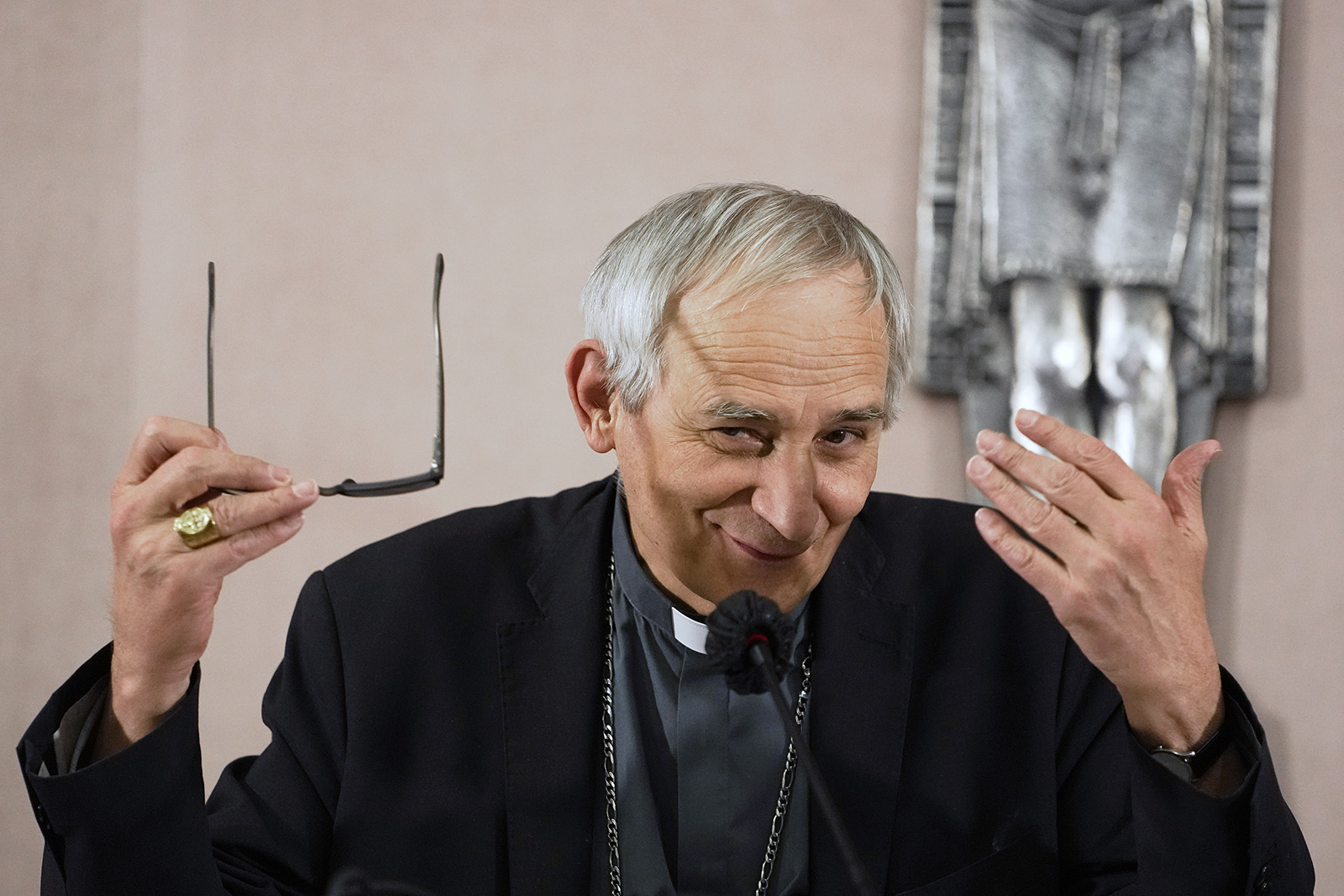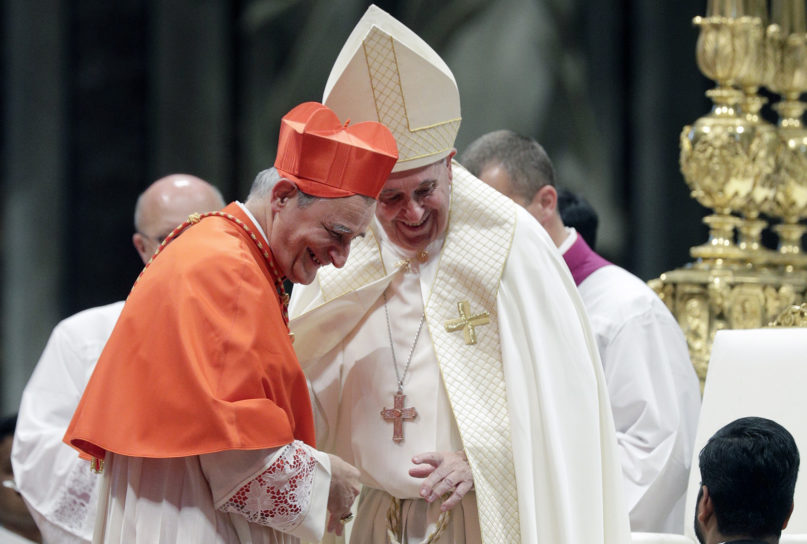VATICAN CITY (RNS) — Unlike most Western countries, Italy has long avoided a thorough investigation of the Catholic Church’s record on clergy sexual abuse. But Pope Francis’ appointment this week of Cardinal Matteo Zuppi as president of the Italian bishops’ conference has rallied survivor groups, who who have been calling for an independent inquiry into sexual abuse scandals in Catholicism’s home country.
The Italian bishops agreed on Friday to launch an investigation into clerical sexual abuse over the past 20 years, after voting against a proposal to investigate the crisis over the past 50 years. The inquiry will consider both confirmed and alleged cases of abuse by priests and Zuppi said he hopes it will be ready by November.
The new head of the Italian bishops said that the foremost concern is listening to the victims, but he shot down the possibility of adopting the method of the inquiry made in the French church, which was conducted by a non-Catholic firm and had a much broader scope.
Zuppi, who has led the Diocese of Bologna, in northern Italy, since 2015, has been hailed by Italian media as “a priest of the streets.” In Bologna, he established listening centers for victims and has hosted at least one seminar to discuss clergy abuse with experts in the field. He is closely tied to the St. Egidio movement, a lay group known for its efforts on behalf of peace and migrants.
Members of the largest Italian network for abuse survivors, the Abuse Network, responded to his appointment by holding a demonstration in St. Peter’s Square on Friday (May 27) to request a formal investigation into abuse cases in Italy.
Besides clerical abuse, several other major issues await Zuppi, in particular the need to develop outreach toward the LGBTQ community.
The Vatican secretary of state, Cardinal Pietro Parolin, congratulated Zuppi on his appointment but said his mandate “won’t be a walk in the park, because there are many problems to address.”
In an interview with Italian daily Il Corriere della Sera on May 3, the pope said he wanted the next head of the Italian bishops to be “someone who wants to make a big change” and expressed hope that the conference, which nominates three names for the pope to make the final choice, would give him the opportunity to select a cardinal with the authority to appoint people capable of enacting necessary changes.

Cardinal Matteo Zuppi, the new head of the Italian bishops’ conference, talks during a news conference in Rome, May 27, 2022. Pope Francis named Zuppi, a bishop in his own image, to the post as the Italian Catholic Church comes under mounting pressure to confront its legacy of clerical sexual abuse with an independent inquiry. (AP Photo/Alessandra Tarantino)
Zuppi’s predecessor, Cardinal Gualtiero Bassetti, who has presided over the Italian bishops’ conference since 2017, has been criticized for his dovish approach in reckoning with sexual abuse. When asked about the need for an inquiry, Bassetti had suggested a “qualitative” approach that would not be limited to sexual abuse in the church, but in all sectors of Italian society.
Neighboring Catholic dioceses in Germany and France have undergone large-scale investigations into abusive priests, looking back 50 years or more. Data collected so far suggests that the percentage of abusers in the clerical ranks ranges between 4% and 7%. In Italy, which has overwhelmingly more diocese and clergy than other European countries, that percentage works out to staggering numbers of priests and survivors.
At Friday’s protest, members of the Abuse Network held posters showing men and women in underwear marred with graffiti-like splatters of blood. The group has built an interactive map on its website to track what it says are all known predator priests so that Italians may grasp the scope of the crisis. No such accounting, they say, has been made by either the Catholic Church or the Italian government.
Cardinal Sean Patrick O’Malley, who heads the Pontifical Commission for the Protection of Minors, addressed the Italian bishops in a video message on Wednesday and pointed up the urgency of the sex abuse crisis.
“It is a reality that we will be judged based on our response to the abuse crisis in the church,” O’Malley said, before listing practical steps to ensure prevention, accountability and transparency while addressing abuse cases.
The cardinal warned the Italian bishops not to adopt “an attitude of defense of the church,” which he said risks only making matters worse. “It’s not easy to acknowledge people’s stories of abuse, listening to survivors and committing ourselves to working together for justice, but after 40 years I can tell you it’s the only way,” he said.
RELATED: Pelosi now barred from Communion in at least four dioceses
Zuppi also has a chance to restore the bishops’ relationship with Italy’s LGBTQ community, which has suffered since they helped block an anti-homophobia bill last year. The Zan decree, named for the member of Italy’s Parliament who proposed it, Alessandro Zan, proposed adding homophobia to the list of racist, religious and cultural discrimination currently prosecuted in the country as hate crimes.
The Italian bishops claimed the Zan decree would limit freedom of speech and religion in Catholic schools and hospitals and violate the 1984 Lateran Treaty, which granted Catholic institutions in Italy freedom of assembly and expression.
Today the Zan bill is once again being considered by Italian legislators, and Zuppi has a chance to take a new tack.
“The mission is what it has always been,” Zuppi said in his first speech after his appointment, “a church that speaks to everyone and with everyone.”
This story has been updated.
RELATED: Pelosi vs. Cordileone isn’t only about abortion. It’s about women and bishops.





